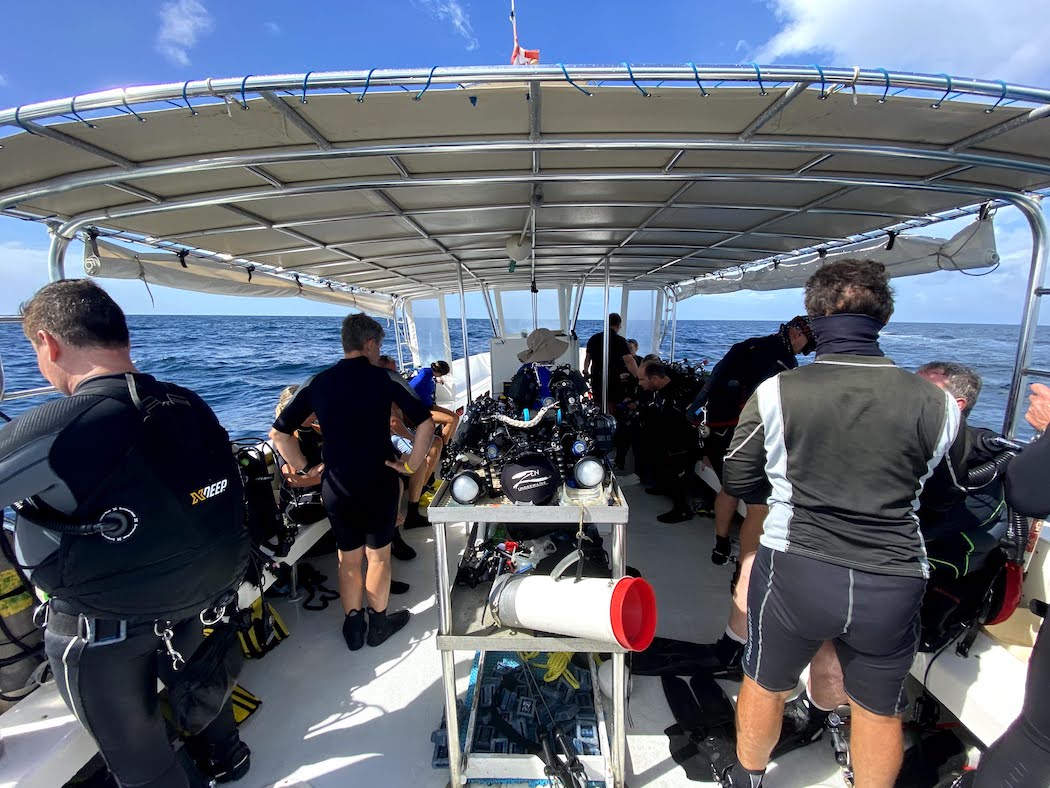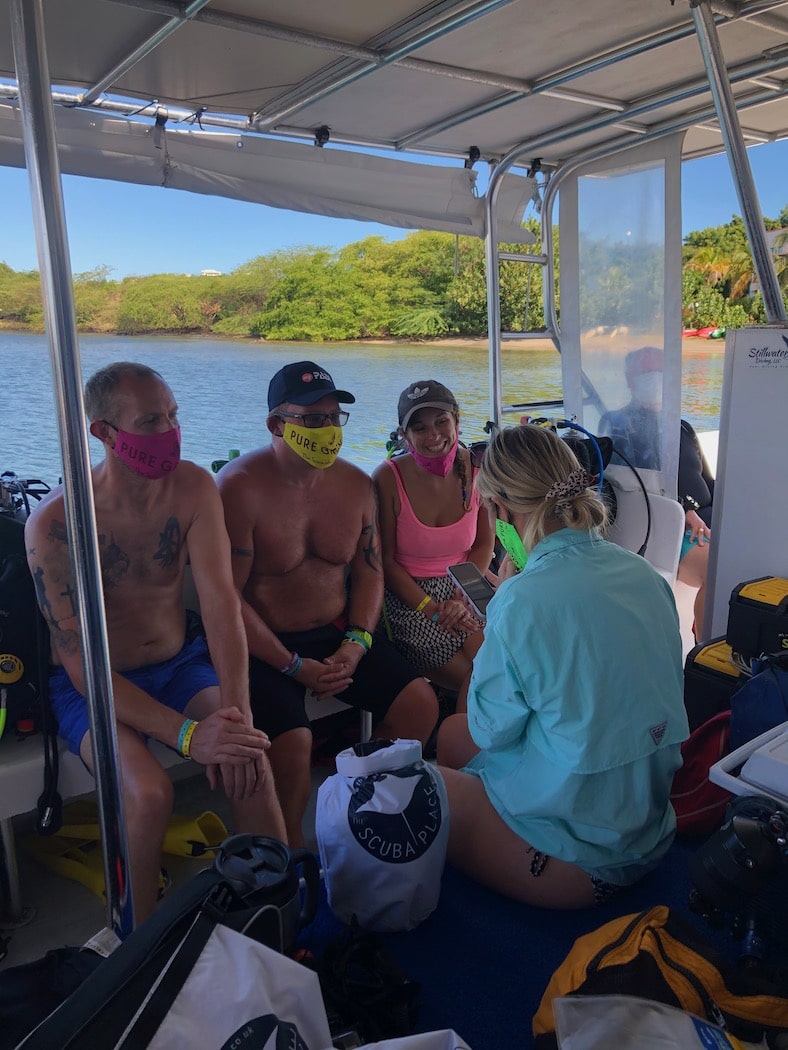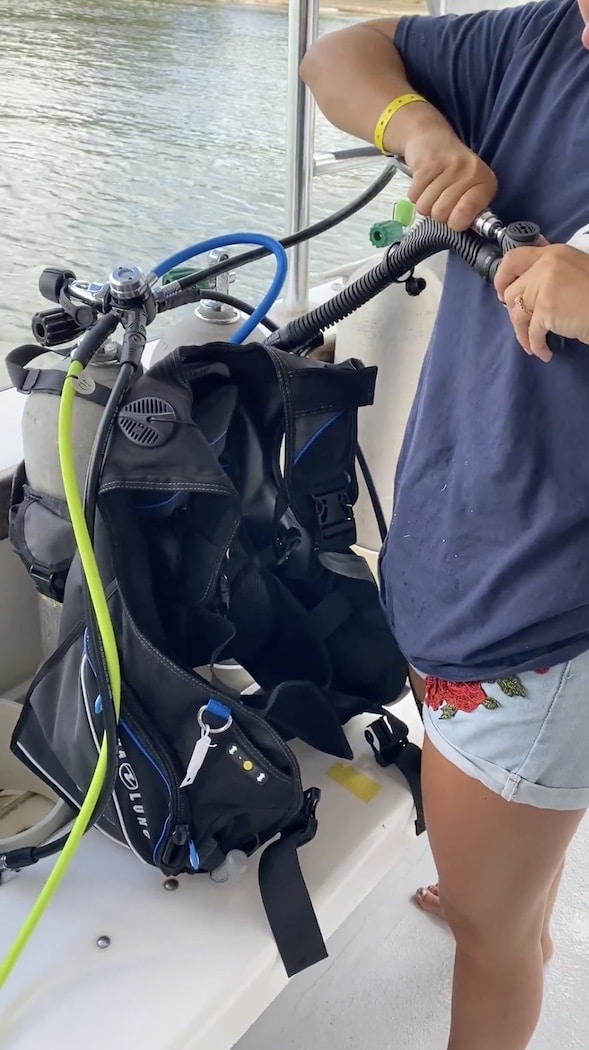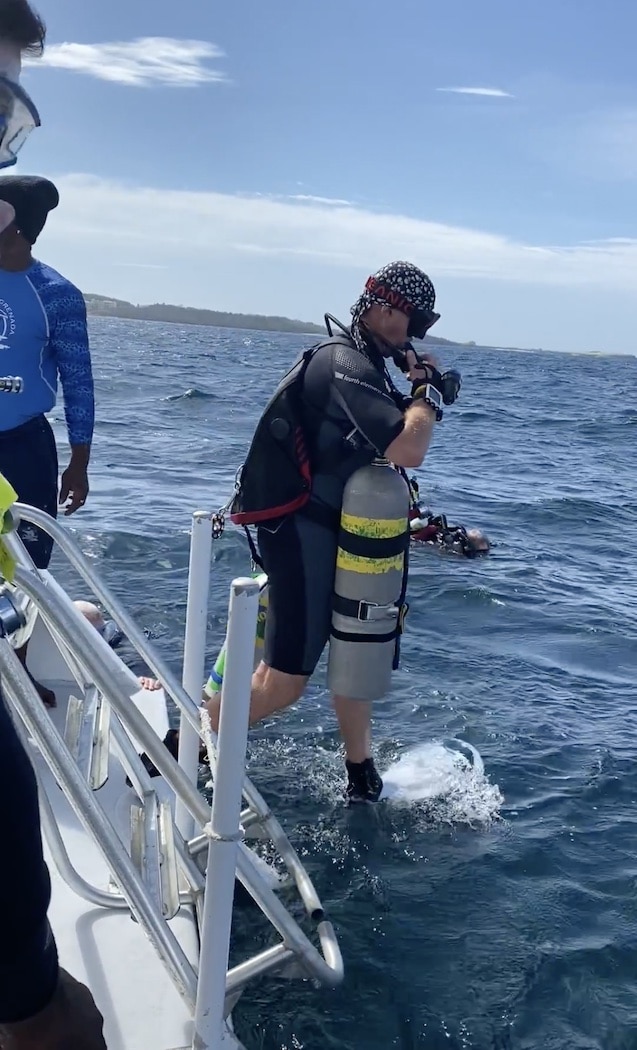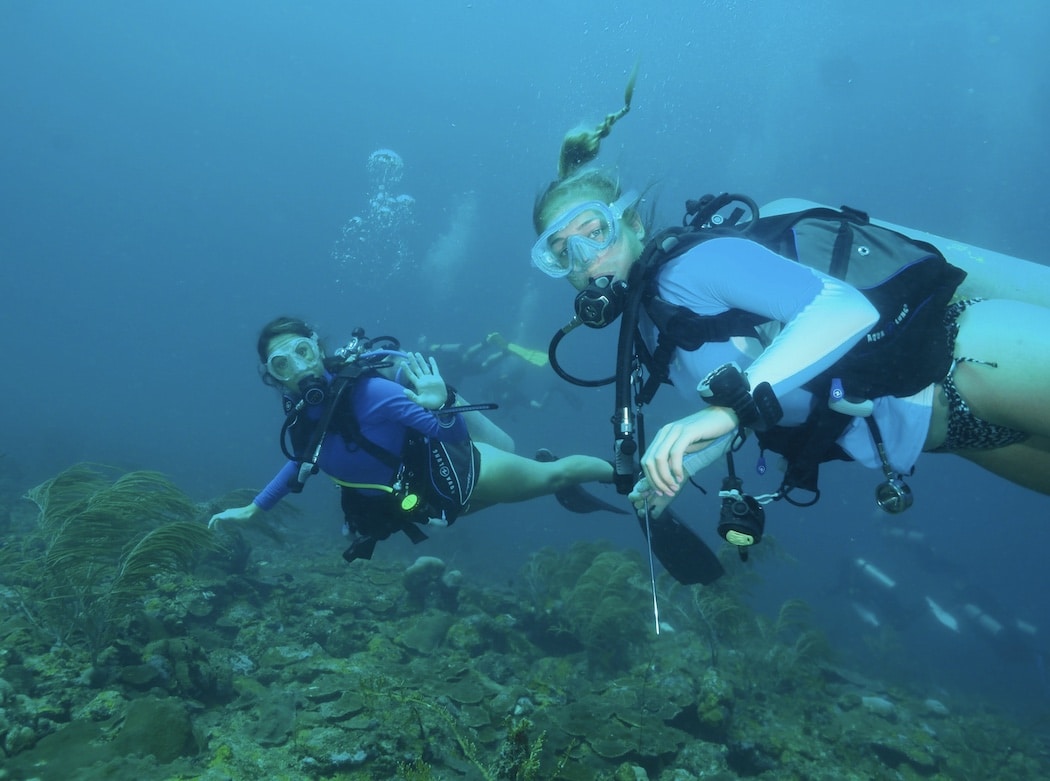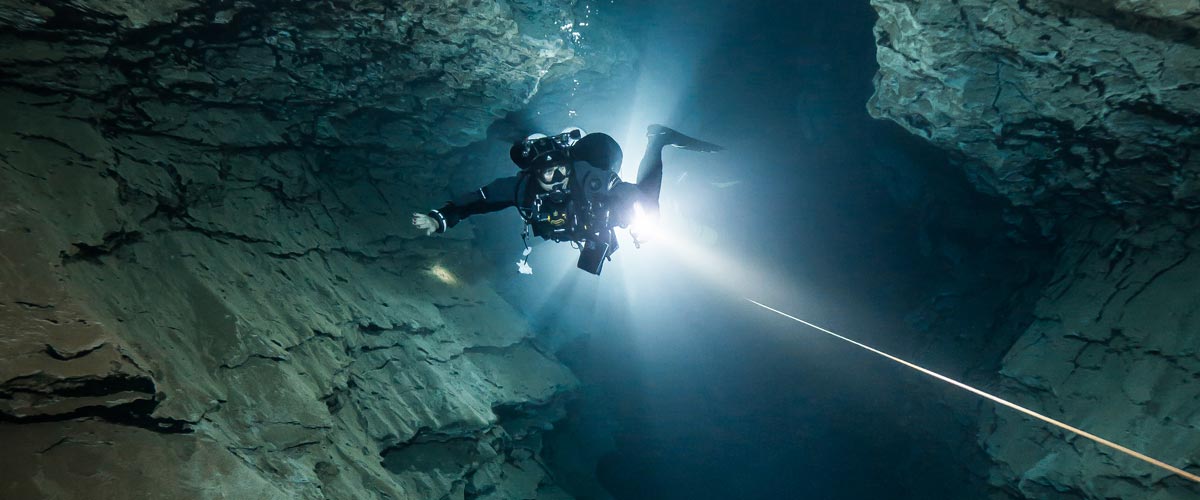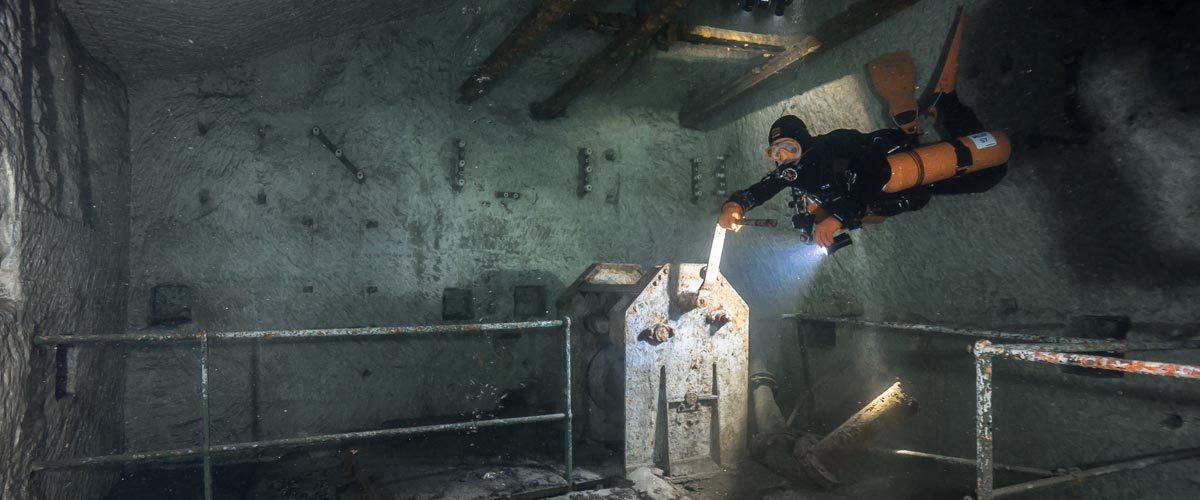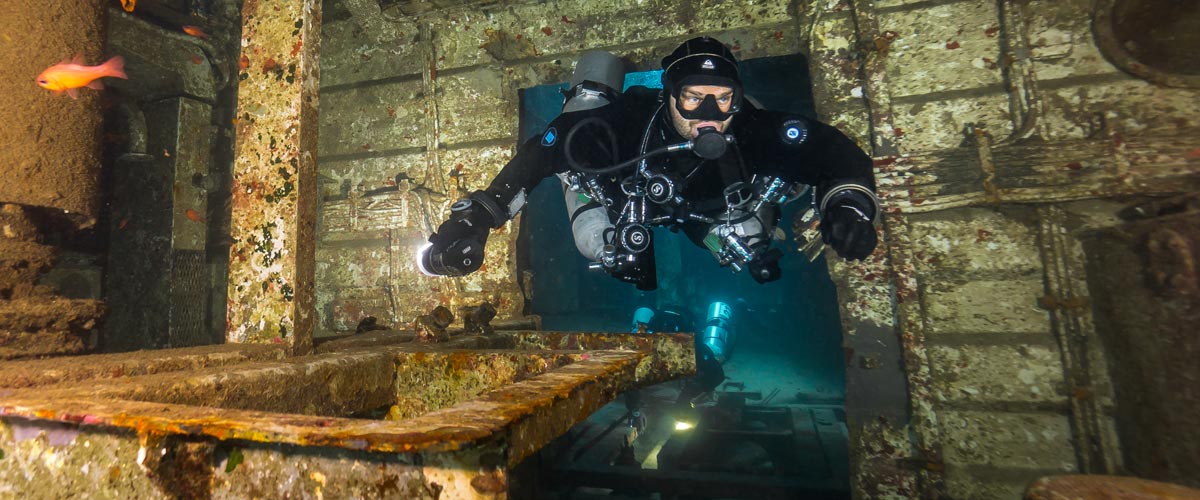Dive Training Blogs
Anxiety and Diving – My Story
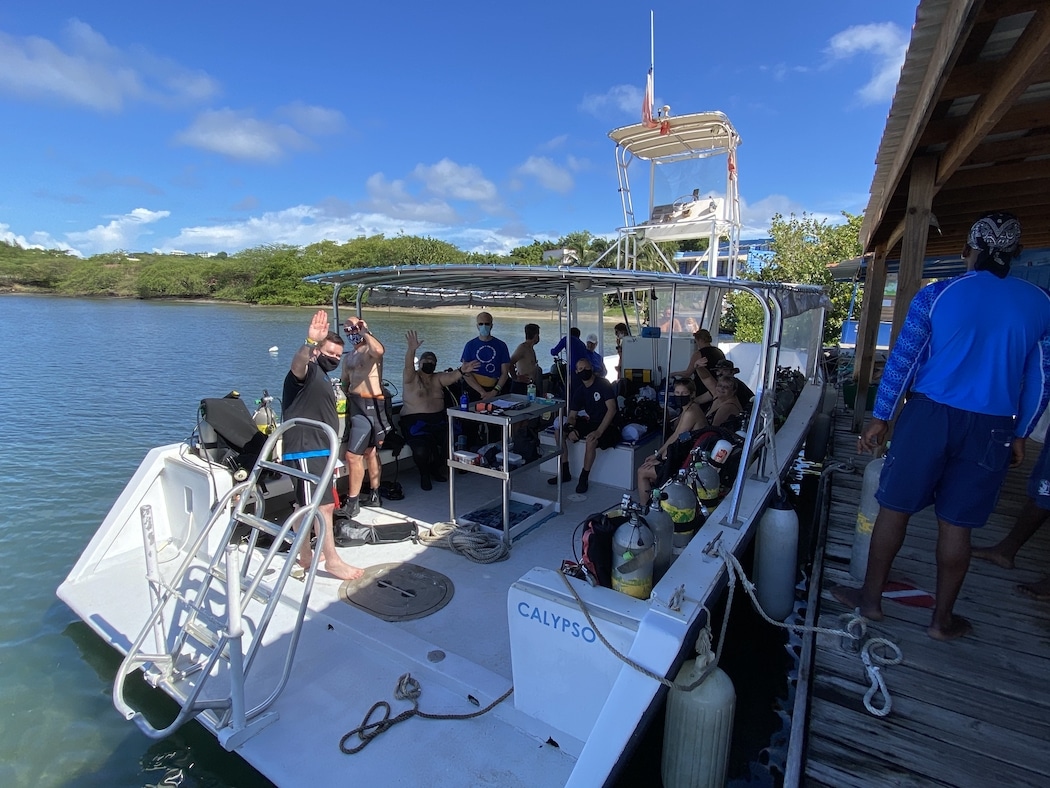
What can you do to help a friend or a dive buddy who experiences anxiety? Chloe from The Scuba Place shares her personal experience dealing with anxiety in and out of the water.
Lockdown is nearly over! None of us knew how long it would last, what to expect or what to do. Throughout lockdown, we’ve been restricted from working, socialising, doing what we love, seeing who we love and so much more. The long-term restriction has affected some more than others and has taken a toll on the mental health of many. I feel it’s important to discuss this so we can better understand how lockdown has affected people not just physically and socially, but mentally, so that when the time comes, we’ll be ready to get back into diving safely. To that point, I would like to share my struggles and experiences with my mental health in and out of the water, so others can learn and become more aware.
One aspect of mental health I want to address in particular is anxiety. Anxiety affects everyone, even though you may not realise it! Anxiety can include feelings of nausea, lack of motivation, becoming lazy or over-active, shutting down, or acting fidgety, over thinking situations or feelings of underachievement, and many many more symptoms. I personally don’t like to define the term anxiety, because I don’t believe there is one specific definition. What we need to take notice of, is that if any of these thoughts start to feel like they can’t be controlled, it can lead to a panic attack. Panic attacks can be life threatening, especially under water, so it’s important we learn more about what to do if it happens. I personally struggle with anxiety and panic attacks, which can be quite difficult, especially when you’re a diver. I thought I would share some mishaps I’ve had in the past, how I overcame them, and how having a buddy who’s aware can reduce stress and danger.
For me, I couldn’t tell you why I am anxious 70% of the time, and that is extremely frustrating. Not knowing where these emotions are coming from is particularly overwhelming for me, and I often work myself up into a panic attack. Over time, I have learnt to accept my anxiety, acknowledge it’s there, and use some coping mechanisms to help although, I haven’t perfected this yet! There are certainly times where I can’t tell myself I’ll be ok in ten minutes, an hour or tomorrow. The feelings can be constant and intense, but I’m learning that it’s ok. Everyone can experience some form of anxiety, and it is normal. For the other 30% of the time, not knowing an outcome can get my anxiety rocketing! So, for someone who isn’t the most experienced diver, I tend to feel sick to my stomach before and during a dive trip – and I promise it’s not the sea sickness, not all of it anyway!
As I mentioned previously, anxiety can be different for everyone, but by sharing how it manifests for me, I hope others can learn more about it, and others who experience anxiety can feel comfortable talking about it. As I’ve not known what causes most of my anxiety, it’s been difficult to pinpoint triggers, but after some time I’ve established that anticipation can be really hard for me. All the build-up to a dive; waking up in the morning, making sure I’m eating enough for breakfast, getting dive kit on the boat, the dive briefing, travelling to the dive site, kitting up and pre-dive safety checks. It can be a lot of waiting and anticipating. Anticipation kills me and I have no idea why.
Let me share an experience from my last diving trip. We were lucky enough to go to Grenada in October 2020. I hadn’t been diving for three years, and in all honesty, I was incredibly nervous. I knew I would be anxious to go diving again because I wanted to make sure I could remember how to dive well, and safely. My biggest fear was putting anyone else at risk, and I think this made me overthink so much. My anxiety was already on board the plane to Grenada before I was!
Luckily, my dad had a conversation with my instructor the day before our first dive to let him know about my anxious tendencies and my panic attacks. I didn’t feel as though I could say anything myself, and I felt a bit embarrassed to talk about it. Looking back on it now, that seems silly. Nonetheless, if you feel as though you can’t speak to your buddy or instructor yourself, it’s perfectly ok for someone who knows to talk to them for you. I know for a fact it made me feel a lot more comfortable straight away. When the morning came for our first day of diving, I was agitated, fidgety, very quiet and I felt sick. However, I did want to go diving. I have such amazing memories from my previous experiences, I knew it was just my brain telling me nonsense through anxiety. But with that first giant stride, my anxiety was literally washed away! I felt all the wonderful emotions that I had on my first ever dive, and every dive since!
It’s certainly important to take the small wins with anxiety to help you when you can’t seem to shake it. For example, the first day of diving in Grenada was a good day for me. Granted, I felt dreadful all morning, but as soon as I hit the water, I was fine. So, how do I deal with my anxiety when it doesn’t disappear, or panic creeps up on me in the water? If you’re a Rescue Diver, you’ll remember that PADI advise an anxious diver to Stop, Think and then Act. This is done through communicating with your buddy, signalling, and then slowing down or stopping until the feeling subsides. This is great advice! Great communication with a buddy massively helps an anxious diver and is another reason why your buddy should be informed if you tend to get anxious during diving. I want to take PADI’s advice a bit further and share what helps for me.
Unfortunately, I have had anxious moments underwater that have led to panic attacks, but how my buddy(s) dealt with it saved us from being in any serious danger. When I feel a panic attack coming on, its sudden and immediate, and the massive wave of anxiety scares me so much I go into a panic. When underwater, I tap my buddy, if they haven’t noticed first, and tell them there’s a problem, and signal it’s my anxiety and I can’t control it. What has helped me best is when my buddy signals if it’s ok to put their hand on my arm – sometimes I welcome a physical touch, other times I feel claustrophobic and want as much space as possible – and look into my eyes. Then with a signal to take slow, deep breaths, we do this together. After a minute, I decide if I feel well enough to continue the dive. Most of the time this is the case, and we continue the dive but if I can’t control my breathing, we end the dive. It’s as simple as that. We get to the surface as quickly and safely as we can (including the safety stop, I must force myself through this) and I have help removing all my kit on the surface.
I can feel trapped when I have a panic attack, so I’ve learned that removing my kit helps a lot. If I still can’t control my breathing, I have been lifted onto the boat and I lie down until I can calm down. Having my buddy next to me and reassuring me it’s ok really helps! The one thing I appreciate most when I’m anxious is acceptance. Having someone next to me telling me what’s happening is ok can be so helpful. So much more helpful than someone who is freaking out about what they need to do to help. For me, I typically need space, reassurance, and water when I’ve calmed down.
I hope sharing my experiences, and how I deal with my anxiety, helps you or someone you know feel more comfortable when dealing with anxiety. If you get feelings like me, I hope you’ll now feel more comfortable talking about it. If you have a dive buddy who gets anxious, I hope this gives you a little insight on what you could do to help. Make sure you ask them about their anxiety, what triggers them and what helps them. Everyone is different! As we build up to a dive, many people have feelings of nervousness, fear, or apprehension. Is this what we call anxiety? However you take it, these feelings are completely normal and I’ll say this over and over again! It’s become my mantra because as an anxious person, I worry so much about affecting other people with my anxiety. I hate slowing down a dive because I feel wobbly, I hate having to end a dive because I’m panicking for an unknown reason. These thoughts will stay with me for the rest of the day and into the night because I feel so guilty. Yet, it happens! It happens to a lot of people and the more we say it is ok, the less people will feel isolated, guilty for having normal emotions, or that they can’t talk about their feelings.
When we scuba dive, we are literally jumping into a new world, an alien environment. It is so important to remember that we aren’t built to breathe underwater, so the concept of doing so may throw our brains sideways a bit! Anxiety can be different for every person and that’s why it’s so important to share your feelings with your buddy, instructor, and others. Anxiety is normal, and it’s perfectly OK! Everyone experiences it and the best thing we can do is talk about it and educate people. We can then be more aware so we can help those who need it. But remember, even if your buddy isn’t an anxious diver, always check up on them, because a great buddy relationship makes for even better divers.
Find out more about the worldwide dive itineraries that The Scuba Place offers at  www.thescubaplace.co.uk.
www.thescubaplace.co.uk.
Blogs
Intro to Tech: What is it about?
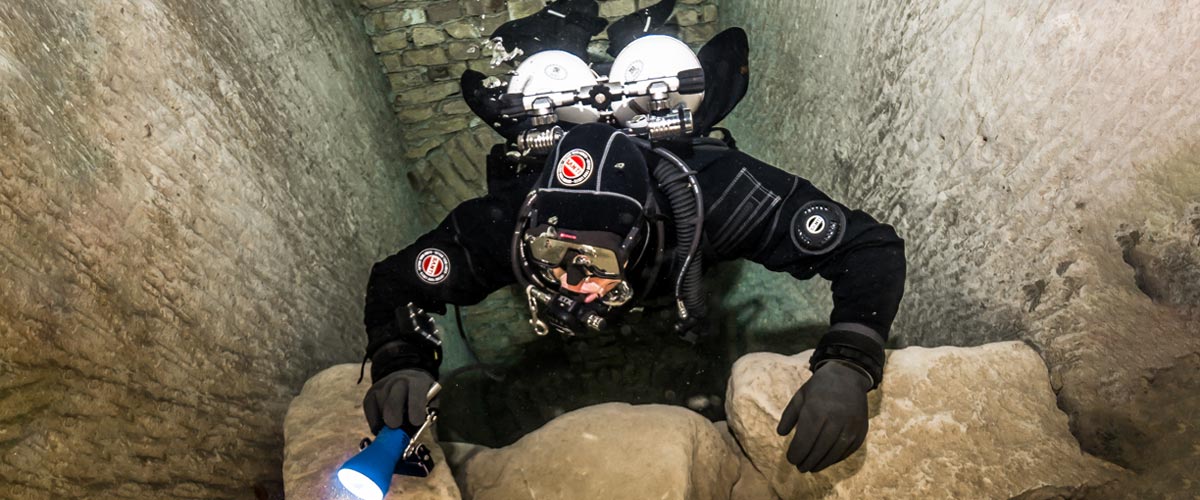
Article by José Pablo Mir
Pictures by Cezary Abramowski
The world of technical diving is exciting. It opens the door to new sites, depths, and bottom times. More importantly, it opens our minds to a new way of planning, facing, and experiencing dives, even those not purely technical.
Becoming a technical diver is a process, and like in other aspects of life, we should find the proper entry point that suits us best based on our knowledge and experience. The Introduction to Technical Diving course from TDI -the world’s largest and most recognized technical diving teaching organization- is the best option for divers who have yet to gain experience in the fundamental aspects of this new practice. The course’s content and its embrace of new techniques and technologies make it possible to acquire a solid foundation to learn and gain experience in this practice properly.
Becoming a technical diver is not something that happens overnight, whether deciding to become one or receiving a certification card stating we are now technical divers. It is a slow process extending farther away than any introductory course. It requires effort and dedication. But it will bring us satisfaction from day one -or two.
It is a matter of mentality
First, we must understand and accept that technical diving, involving greater depths, longer bottom times, exotic gases, virtual or real ceilings, and more, comes with higher levels of risk than the sport diving we have been practicing until now.
Although this discussion usually starts with a warning about risks, as I’ve done in the previous sentence, our practice is not a game of chance.
Technical diving is a rational activity that requires maturity and good judgment, and we will put everything into ensuring that each dive is a successful one -meaning we return from it safe and sound. With this understanding, we will strive to establish a mental attitude more aligned with our practice and its realities.
This new “technical diver” mindset we will develop will lead us to be more cautious in our executions, more analytical in our plans, more rational in our strategies, and more detailed in our procedures.
Experience will keep teaching us to know ourselves better, to keep our anxiety and other emotions under control, and to manage our impulses. Over time, our senses will sharpen, and we will be more attentive to the particulars of the situation we find ourselves in.
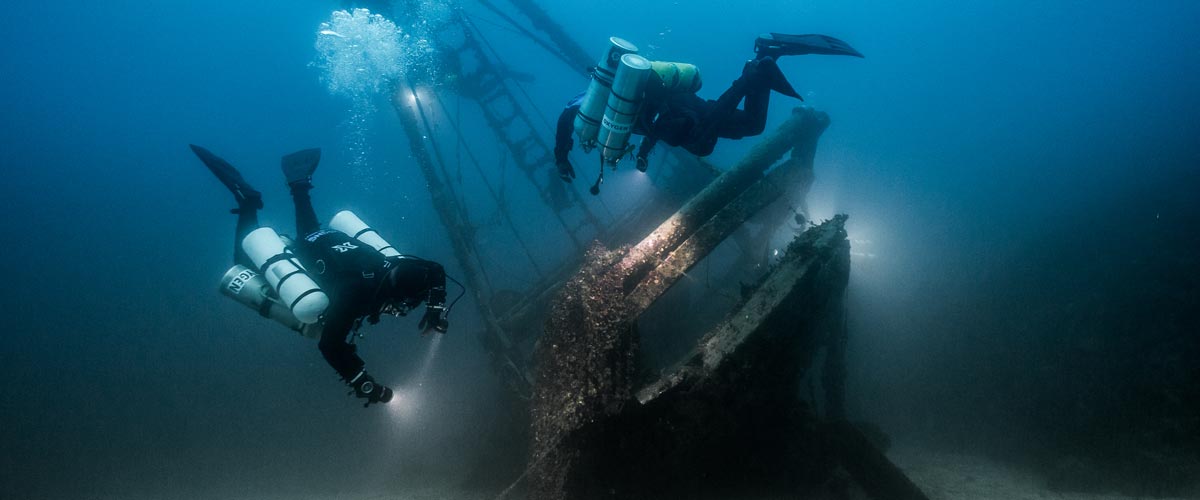
Strategies and procedures
Our strategies, those broad guiding lines tracing the path to follow, from how to approach planning to where, with what, and how we are willing to get there, will be more specific and more practical. Not because they magically become so, but because we will consciously and deliberately frame them that way.
We will establish clear, concise, and realistic procedures. Not only for the undesirable situations that may present themselves but also for those that are part of our dive objectives.
Even though, as technical divers, we often use equipment different from what we were previously accustomed to, it is essential to note that the gear does not make the diver. In a way, we could consider such equipment as the necessary tools to implement what our goal seeks to achieve, according to our strategies and procedures.
Technique plays an important role
We must put our greatest effort into learning and perfecting the different techniques we will be acquiring. Buoyancy, trim, propulsion, cylinder handling, deploying DSMBs and lift bags, valve drills, and more are essential skills we must begin to master to progress in our art. What we cannot do, when we need to do it, can harm us.
Our techniques must be effective and achieve the purpose for which they were devised. But they must also be efficient and require the least resources possible, including the time they take and the effort they demand. Effectiveness and efficiency will prevail over beauty and other considerations that may come to mind, although none of them should be mutually exclusive. A technique executed efficiently and effectively tends to have an inherent beauty.
Refining techniques is a lifelong mission. Some of them will be easy to master from the go; others, on the other hand, will be our life mission and will require many repetitions just to resemble the idea we have in mind of how they should be executed.
We must consider the environment
Our learning, the needs and musts of the practice we engage in, the experience we gradually gain, our strategies and procedures, and even our equipment and tools change with the environment.
Diving in the ocean, everything about us must be suitable for ocean dives. Conditions there rarely emulate those found in a pool, lake, or river. Variable winds and currents, greater depths, visibility conditions, other divers with uncertain skills around us, marine life, maritime traffic, distance from the coast, and many other factors add complexity and uncertainty.
It is never necessary to master the pool on the first day, but planning and aspiring to gradually cope with the ocean’s conditions is essential.
The cost of good training
We are aware that our resources are often scarce in relation to the possibilities of use we could give them if they were not. To a greater or lesser extent, we are part of the economic reality in which we are embedded.
Fortunately, the cost of good technical diver training is not an entry barrier. Comparing training and equipment costs, we see that the former are generally lower. Yes, lower cost for personalized service, essential to our future
performance and safety, than for a series of mass-produced products that are mere, albeit necessary, tools for an end.
The value of good training
The value of the training we received encompasses a range of characteristics, from emotional and methodological to technical and technological. TDI and its Introduction to Technical Diving course offer a deep and modern approach, with a teaching strategy that aims to create thinking divers, not merely obedient ones.
As technical divers, our knowledge is our primary tool. In this type of activity, what we don’t know can harm us.
Is this course optional?
Unfortunately, the fact that this Introduction to Technical Diving course is not a prerequisite for any subsequent training is an invitation to consider it optional. And we all know what usually happens to “optional” under budget constraints.
However, this course should be seen as optional only by those divers who are somehow familiar with the use of technical equipment, who have a mindset more in line with the requirements of this type of diving, who plan and execute the dives the proper “technical” way, who know their gas consumption rate, who are not intimidated by non-decompression tables, who feel comfortable using their dive computers, and know the techniques and have at least an acceptable level of buoyancy, positioning, and propulsion. Those can go straight to a more advanced training course, such as TDI’s Advanced Nitrox.
We must ask ourselves whether or not we are in that group.
Remember our goal: to have fun
Recreational diving is our passion. Jumping into the water carrying heavy equipment and having properly dotted our I’s and crossed our T’s have only one ultimate goal: fun. This is the activity we have chosen as a hobby. We must enjoy it; it must give us pleasure and make us vibrate.
Having a good time is not optional!
Blogs
Four opportunities to go pro in 2024 with Dive Friends Bonaire
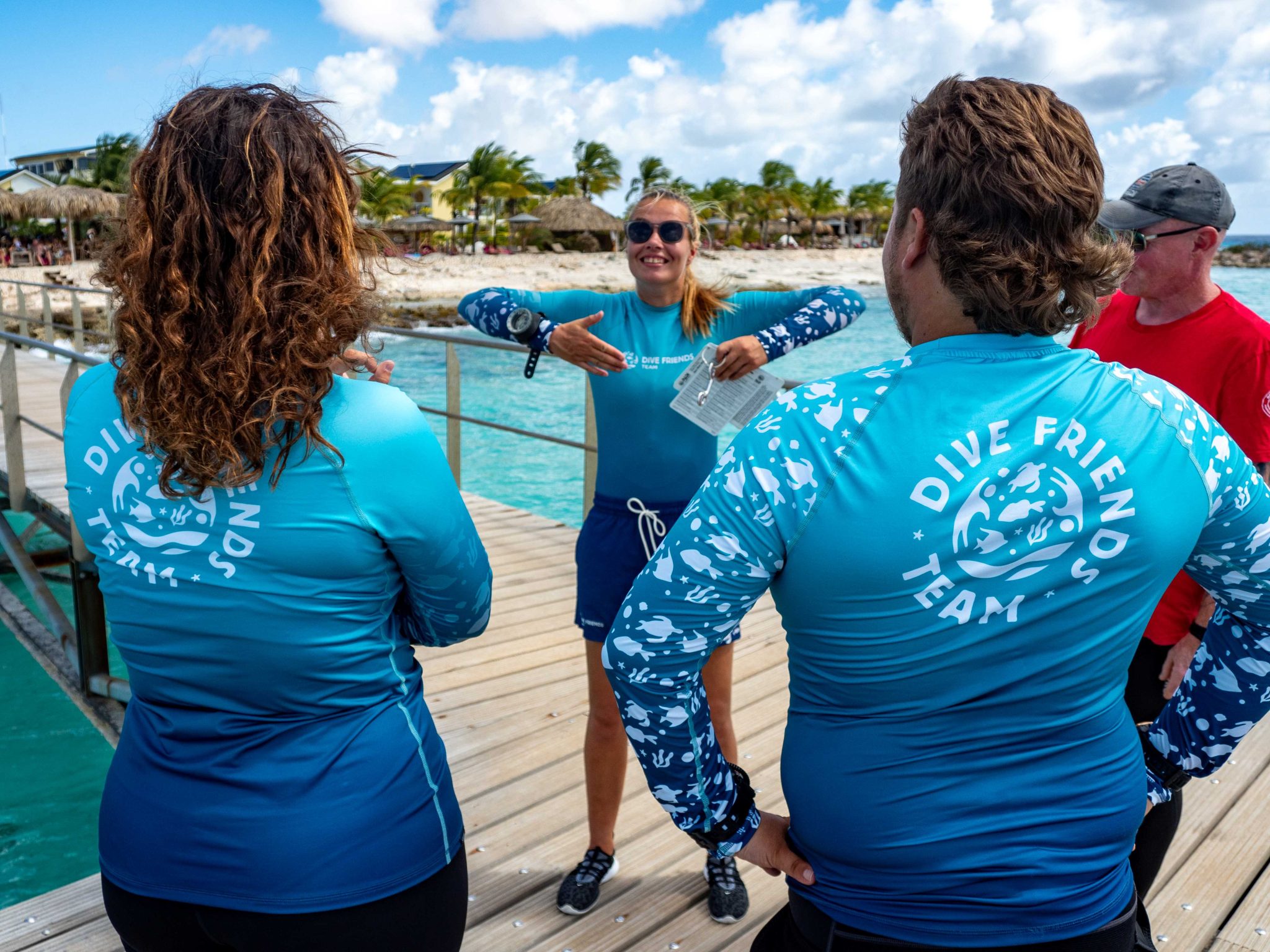
Dive Friends teaches the Instructor Development Course (IDC) several times a year to students who are eager to share their passion for diving with the world.
Dive Friends is known for the personal approach throughout the course. Their in-house course director will lead the students through every essential step, mentoring them to achieve their fullest potential as a dive instructor.
Applications for the following IDC start dates are now open:
- 12 April
- 5 July,
- 20 September
- 29 November
Partnership with Casita Palma
If the student opts for the IDC-Deluxe or IDC-Supreme package, their accommodation will be arranged for them at Casita Palma. This small and quiet resort is within walking distance from Dive Friends Bonaire’s main dive shop location and has everything you need to relax after an intense day of IDC training. Breakfast is included, so the student will always be fuelled and ready for their day.
Contact Dive Friends Bonaire’s Course Director Eddy for more information: coursedirector@divefriendsbonaire.com.
-

 News3 months ago
News3 months agoHone your underwater photography skills with Alphamarine Photography at Red Sea Diving Safari in March
-

 News3 months ago
News3 months agoCapturing Critters in Lembeh Underwater Photography Workshop 2024: Event Roundup
-

 Marine Life & Conservation Blogs3 months ago
Marine Life & Conservation Blogs3 months agoCreature Feature: Swell Sharks
-

 Blogs2 months ago
Blogs2 months agoMurex Resorts: Passport to Paradise!
-

 Blogs2 months ago
Blogs2 months agoDiver Discovering Whale Skeletons Beneath Ice Judged World’s Best Underwater Photograph
-

 Gear Reviews2 weeks ago
Gear Reviews2 weeks agoGEAR REVIEW – Revolutionising Diving Comfort: The Sharkskin T2 Chillproof Suit
-

 Marine Life & Conservation2 months ago
Marine Life & Conservation2 months agoSave the Manatee Club launches brand new webcams at Silver Springs State Park, Florida
-

 Gear Reviews3 months ago
Gear Reviews3 months agoGear Review: Oceanic+ Dive Housing for iPhone


